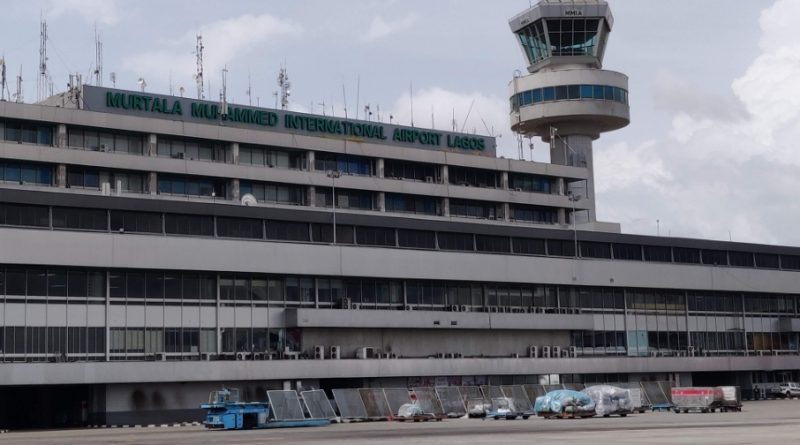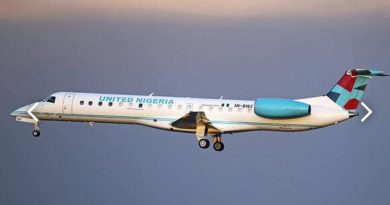Frequently Asked Questions (FAQs) About Airport Concession
Frequently Asked Questions (FAQs), About Airport Concession is compilation of the Directoriateof the Public Affairs, Ministry of Aviation
Why concession these airports?
The delivery of this project helps Nigeria achieve its objective in terms of air transport value chain growth by developing and profitably managing customer-centric airport facilities for safe, secure and efficient carriage of passengers and goods at world-class standards.
Nigeria is Africa’s largest economy and most populous nation, with a broad range of investment and tourism opportunities. Investing in and continuously developing the asset up for concession is key to unlocking these opportunities. Our airports have huge potential, but they are currently operating at a suboptimal level due to a myriad of factors that will be addressed through their concession.
Why are you not concessioning all the airports?
Infrastructure concessions are very complex and sensitive programmes. They often requiring years of planning and preparation to secure the requisite inputs and approvals from the relevant regulatory bodies. We are starting with the most strategic assets because successful delivery of this concession programme will give all stakeholders the confidence required to consider other possibilities in the sector.
What parts or sections of the ‘airport’ are to be concessioned?
The concession applies to the non-aeronautic assets of the airports located in the Passenger and Cargo terminals. They are thus comprised of the assets from the entry door of the airport to the point of embarking a plane, and from deplaning to the exit doors. This space commonly referred to as the Passenger terminal is comprised of retail spaces, waiting and seating areas, airport and airline lounges, baggage collection, check-in counters as well as administrative offices. The Cargo terminals are comprised of the facilities between the point of entry and up to loading and offloading points, including administrative offices within said facilities.
Are you selling the airports?
No, there shall be no change in the ownership structure of the airports involved in this programme. What has been mandated by the Federal Executive Council is a Concession programme. A concession is governed by a concession agreement whereby two parties – A private sector investor and a Public sector owner of an asset enter into an agreement that gives the Private sector investor the right to operate said asset for a specific business and within the Governments jurisdiction, subject to certain terms that are agreed upon by both parties during the negotiation and contracting phase. It is thus a form of Public-Private Partnership whereby there is no transfer of equity between the contracting parties.
Is there a conflict between this concession programme and the terms of the EXIM Bank loan agreement entered into between the FG and the Peoples Republic of China which has seen CCECC build new passenger terminals in Lagos, Abuka, Kano, Port Harcourt and Enugu Airport?
There is no conflict. China Civil Engineering Construction Corporation (CCECC) was contracted to deliver a number of infrastructure projects throughout Nigeria in 2013. The Passenger Terminal development works are a small part of this, and the Federal Government has every intention to service its obligation.
Why are you concessioning as opposed to selling or fully privatising these facilities?
The Passenger and Cargo terminals of each airport, although separated for the purpose of the concession programme, are within the various federal airport complexes and as such, are of tremendous national importance from an economic and security perspective. We believe it remains in Nigeria’s best interest to maintain ownership for this reason. Furthermore, as is often the case with large, multifaceted infrastructure developments, the scale of investment required to build the airport complexes envisaged in the aviation sector roadmap will require the support of the Sovereign Wealth Fund in a way that an outright privatisation will not allow at this time.
Why concession only the passenger terminals?
We are not. The cargo terminals for all the four (4) airports will also be part of the programme.
Who are the ideal concessionaires/partners?
We are looking for partners who have the financial, technical and operational capabilities to manage these assets profitably and responsibly.
How will you select the successful bidders?
The infrastructure Concession Regulatory Commission (ICRC) – the institution that oversees all concession and Public-Private-Partnerships in Nigeria has clearly laid out processes governing a transaction like this. The Transaction Advisors – a coalition of independent and reputable organisation have been mandated by the Ministry of Aviation (having received approval from the Bureau of Public Procurement for their appointment) to drive this process transparently, ensuring that regulations laid out by the ICRC are followed whilst also ensuring that Nigeria gets the best partner(s) and deal possible given the unique attributes of the assets to be concessioned.
When will the public procurement process go live?
We now have OBC Certificates of Compliance from the Infrastructure Concession Regulatory Commission. We are currently finalizing the documents required for the procurement phase, after which we will commence the next stage of the process, i.e. publishing a Request for Qualifications (RFQ) – a critical phase of the public procurement process. The RFQ will give interested parties, local and international, ample time to prepare their submissions. Once the deadline for submission has been crossed, we will then begin the pre-qualification process. Only Pre-qualified parties will be invited to respond to a Request for Proposal (RFP), which will also be published as per ICRC guidelines and general best practice in Public Procurement.
Will you invite foreign firms to participate?
We are looking for partners who have the financial, technical and operational capabilities to manage these assets profitably and responsibly. We envisage a competitive process and as such we will be advertising broadly. All qualified companies or consortiums shall be allowed to submit proof of relevant qualifications once we have published a request for qualifications (RFQ).
What is the tenure of the concession?
Infrastructure concessions of this nature come with a significant financial obligation which any responsible concessionaire will no doubt be keen to recoup. To this end we envisage a minimum of twenty (20) to thirty (30) years for the programme, which may be extended depending on performance and Nigeria’s best interests. That said – the duration is not set in stone and will be subject to negotiation and then final approval by the Federal Executive Council.
How might issues related to the MM2 concession affect this process?
These are two entirely independent concession programmes and as such we are not at liberty to comment or join issues. We do however hope that all stakeholders appreciate that the concession programme we are focused on right now operates in an environment of enhanced Governance with enabling structures and processes. At the time the MM2 Concession programme was initiated on there was no ICRC. We are now operating in a much more evolved and mature environment as regards governance related to infrastructure concession programmes.
How much does the FG intend to generate through this process?
A typical airport concession transaction might rely on a deal structure comprised of an investment commitment by the concessionaire for a minimum duration, an annual concession fee and a share of net operating income.
These are prized aviation assets and as such we expect to generate a significant amount of direct investment in what we intend to be an equitable deal for all parties. That said, the initial or short-term objective is to deliver significant cost savings to the Federal Government. FAAN will no longer be solely responsible for maintenance, investments and day to day management into these airports.
Is this concession programme legal?
The concession programme, its stakeholders and the Transaction advisors appointed to deliver it have followed all relevant laws and procedures. The Infrastructure Concession Regulatory Commission (ICRC) – the institution that regulates all infrastructure concession programmes and Public-Private-Partnerships in Nigeria has clearly laid out processes governing a transaction like this. The Transaction Advisors – a coalition of independent and reputable organisation have been mandated by the Ministry of Aviation (having received approval from the Bureau of Public Procurement for their appointment) to drive this process transparently, ensuring that procedures prescribed out by the ICRC are followed to the letter. The Ministry of Aviation has also supported the process by consulting widely with all stakeholders, paying particular attention to organised labour who are a critical stakeholder group and very much supportive of this process.
Can the Ministry of Aviation / FAAN procure PPPs directly?
In Nigeria, all Federal Government Ministries, Departments and Agencies (MDAs) as well as State Governments can legally procure PPP projects.
Has the National Council on Privatisation (NCP) approved this programme? OR Is there overlapping jurisdiction with BPE?
The National Council on Privatisation, which is chaired by His Excellency, Vice-President Yemi Osinbajo, is a policymaking and advisory council enabled by the Public Enterprise (Privatisation and Commercialisation) Act of 1999. It operates through a secretariat – the Bureau of Public Enterprise (BPE). BPE’s function is thus to implement the NCP’s policies on privatisation and commercialisation. This programme is a concession programme that follows the principles of Public-Private-Partnerships (PPP). This model will see concessionaires sign contracts for the management, development, operation and maintenance of these airports with the Federal Government of Nigeria. There will be no change in the ownership structure of the assets to be concessioned.
ICRC and BPE share information and collaborate regularly (The Director-General, ICRC, is a member of the NCP’s Technical Committee). Infrastructure concession programmes are complex transactions involving several stakeholders. In this particular case there is no overlapping jurisdiction with the BPE. The BPE implements the privatisation and commercialisation policies of the National Council on Privatisation. This is not a privatisation project because we are not transferring any ownership of equity in these airports. The mandate is to deliver private sector participation in the management, development, operation and maintenance of the Passenger and Cargo terminals of airports that will remain under the ownership and overall management of the Federal Airports Authority of Nigeria. The Infrastructure Concession Regulatory Commission (ICRC) Act 2005 is the Act of law governing Public-Private-Partnerships involving infrastructure in Nigeria. The ICRC’s enabling act permits Government Ministries, Departments and Agencies, under the guidance of the ICRC, to engage private sector organisations for the development, financing and operation of infrastructure assets. This Act, being a more recent and specific law created especially for the purpose of regulating infrastructure concessions, supersedes the Public Enterprise (Privatisation and Commercialisation) Act of 1999.
What potential issues do you foresee based on the FAAN Act 2004, provisions of the Act No. 52 of 1999 (Amended) and Decree No.9 of 1996?
There are no limitations placed on the intended outcomes of this concession process vis-à-vis the FAAN Act 2004 and subsequent amendments.
Are there any plans to amend FAAN’s enabling legislation to unbundle the organisation as has been proposed by some lawmakers?
We are aware of some proposals to this effect that consider unbundling FAAN with a view to repositioning it as an asset manager. We are unable to comment further at this stage.
Have there been broad-based stakeholder consultations?
The Ministry has from the very start worked in partnership with all relevant stakeholders within and outside of government. ICRC’s process allows the Ministry some discretion as regards participation of external stakeholders and this was exercised at the Honourable Ministers request when he invited organised labour to participate in the Project Delivery Team. The decision to bring Labour into the Project Delivery Team came about as a result of a deep appreciation of role Labour has to play in delivering the best possible outcome for the Nation. The Ministry continues to engage proactively with all relevant stakeholders in spite of the challenges caused by the ongoing COVID-19 global pandemic.
Is the FMA handling the process?
The process is driven by the Transaction advisor who are comprised of independent and reputable private sector companies appointed by the Ministry of Aviation, having gone through a rigorous process as laid out by the Bureau of Public Procurement (BPP). The Transaction advisor has been mandated to manage the technical aspects of the process – working with key stakeholders such as ICRC, FAAN and the Ministry of Aviation to design and deliver the concession programme. The Transaction advisor will continue to work independently with oversight from the Ministry of Aviation and ICRC. Their recommendations will then be submitted to ICRC and the Ministry of Aviation before being forwarded for review and final approval by the Federal Executive Council.
What role will FEC, ICRC, BPP and the Presidency play in this process?
FEC – The Federal Executive Council is the final approving body for this programme.
ICRC – The ICRC regulates all infrastructure concessions and public-private-partnerships involving infrastructure in Nigeria and as such has oversight of this process in partnership with the Ministry of Aviation.
BPP – The Bureau of Public Procurement has no role to play at this point having concluded its role by having oversight of the public procurement process that led to the appointment of the Transaction advisor.
BPE – The Bureau of Public Enterprise has no role to play in this process as there will be no change in the ownership structure of the assets involved in this concession programme.
The Presidency – President Muhammadu Buhari (GCFR) chairs the Federal Executive Council.
National Council on Privatisation – The NCP implements its policies through the BPE, which has no role to play in this process as this is a Concession / Public-Private-Partnership and not Privatisation. There will be no change in the ownership structure of these assets.
Will preference be given to indigenous investors?
We are focused on driving a transparent and competitive process that will deliver the very best long-term partner(s) and outcomes for Nigeria. There are not many companies with the qualifications, experience and financial resources required to run assets like the ones up for concession so whilst we do expect Nigerian companies, or consortiums comprised of groups of Nigerian investors, we expect the process to receive significant attention from the international community, perhaps in partnership with qualified and capable local companies and investors.
What role will FAAN play once the assets are handed over to Private sector management?
The Federal Airport Authority of Nigeria (FAAN) remains responsible for overseeing the management of Nigeria’s airports. FAAN will continue to play this role broadly.
Will the FG continue to invest in these airports?
The concessionaires will be responsible for the day-to-day management of the airport passenger and cargo terminals. The FGN, as the owner and partner to the concessionaires will make strategic investments in these assets alongside others from the private sector and development finance sector. Any investment contributions made by the FGN will be based on robust medium to long-term investment and expenditure plans to be developed by the concessionaires with oversight from the Ministry of Aviation.
Will the airports be concessioned to one or several private sector partners?
We envisage a competitive process and our focus is on partnering with the right organisation(s).
Will this process affect incumbent operators and tenants within the affected facilities?
All tenants within the assets subject to the concession have entered into legal agreements with FAAN. FAAN will ensure that it respects and acts within the rules articulated in agreements with tenants and operators within the assets.
What are the implications of this process for national security?
There are no national security implications. The Federal Airports Authority, Nigerian Civil Aviation Authority, Nigerian Aerospace Management Agency and all other public authorities tasked with collaborating with the Nations security apparatus will continue to perform their duties in close collaboration with the concessionaires. All relevant agencies have been carried along including the National Security Advisor.
Why has the FMA decided to maintain direct control and management of the aeronautical assets of the airports?
At this time, we feel it is best to focus on the non-aeronautical assets of the airports.
What are the timelines for completion of this process?
From the date of publication of the Request for Qualifications (RFQ) we envisage 6 – 8 months to transaction close.
Will the Government bundle Tier 2 airports into this deal at any stage?
ICRC has issued OBC Certificates of Compliance for four (4) assets only. These airports are Murtala Mohammed International Airport – Lagos, Nnamdi Azikiwe Airport – Abuja (International & Domestic), Port Harcourt Airport (International & Domestic) and Mallam Aminu Kano Airport (International & Domestic). Our scope is thus limited to these specific airports.
What is the current status of the dispute involving Bi-Courtney?
This programme is exclusively focused on the concession effort at hand. If you have specific questions about this particular concession programme we would be happy to answer them.
Does the FG intend to dissolve FAAN?
No, the FAAN will continue to play its role as statutorily required. Any material changes to FAAN will need to come via an act of law.
Who are the transaction advisors for this programme?
The Transaction advisors (TAs) is comprised of a team of seasoned executives put forward by Dentons (a multinational law firm with global operations), Infrata (a global infrastructure investment advisory firm), Proserve Energy and Infrastructure Consulting Services (an indigenous advisory firm focusing on energy and infrastructure projects), Templars (a leading law firm headquartered in Nigeria) and Rebel Group ( a global leader in infrastructure, transportation and mobility advisory services).
How were the transaction advisors recruited?
The Transaction advisors, comprised of independent and reputable private sector companies, were appointed by the Ministry of Aviation, having gone through a rigorous process as laid out by the Bureau of Public Procurement (BPP). BPP’s laid down process for good governance in public procurement is available on their website.
Do the transaction advisors have the requisite experience to drive this programme?
All members of the Transaction advisory team have a proven track record of delivering positive outcomes in complex infrastructure projects. Their credentials were rigorously interrogated by the Ministry of Aviation, BPP, ICRC and the FEC. The international partners who form a core part of the team have deep aviation sector experience spanning several countries.
Why is FMA working with foreign transaction advisors?
The international partners who form a core part of the transaction advisory team have deep aviation sector experience spanning several countries. Their vast network of relationships is comprised of some of the most credible investors and operators of major infrastructure assets, which includes airports, anywhere in the world.
Have there been expressions of interest prior to the formal launch of this process?
There has always been some level of interest in these assets.
How does the FMA aim to demonstrate transparency and good governance?
The FMA has thus far demonstrated that it places great emphasis in transparency and good governance. FMA widely publicised its intention to seek approval to concession these airports as far back as 2017. It also went through BPP’s rigorous public procurement process which culminated in the appointment of the Transaction advisors. FMA’s intention to deliver the most transparent infrastructure concession programme to date is also evidenced by the extensive stakeholder engagement carried out prior to making its OBC submission to ICRC. FMA also publicised the issuance and handover of the OBC Compliance Certificates to the Ministry by the ICRC. FMA is briefing you right now and will continue to brief you as we approach and achieve key milestones. We invite you to visit www.faan.gov.ng for regular updates.
How much does the FG think it can generate through this process?
We expect to generate significant cost savings and operating income over the period of the concession. Airports continue to be prized assets in the global logistics sector which is projected to grow.
Will the Central Bank give these new investors assurances for capital importation and repatriation?
The Federal Government of Nigeria will work closely with the successful bidders to ensure that they have access to whatever resources and support required to successfully run these assets on behalf of Nigeria.
Where can we go to find up to date information on this programme?
We invite you to visit www.faan.gov.ng for regular updates.
What is the prescribed process for Infrastructure concessions in Nigeria?
Each sector will have its own peculiarities; however, the broad process is as follows:
There are 4 phases: Project Identification, Project Development and Preparation, Procurement and Implementation.
PPP Project Identification
ICRC receives a concept note from a government Ministry, Department or Agency (MDA)
If approved, a Steering Committee, Project Delivery Team and PPP Project officer are set up
The project is put into the pipeline for approval for the Federal Executive Council (FEC)
PPP Project Development and Preparation
Initiating organization approaches BPP, begins the process of recruiting Transaction Advisers through a public procurement process regulated by BPP
Transaction advisors approved and receive their mandate
Outline Business Case (OBC) is drafted
ICRC reviews the OBC and issues a certificate of compliance
Ministry of Finance asses risk and liabilities
PPP Procurement
Publishing a Request for Qualifications (RFQ)
Pre-qualification
Tendering process – Request for Proposal (RFP) and Bid submission
Bid evaluation and recommendations
Negotiate concession agreements and other documentation
The submission of the Full Business Case (FBC) to the ICRC and issuance of the certificate
Full Business Case certificate presented to the FEC for approval
Signing of the PPP Contract
PPP Implementation
Financial Close is achieved and work begins with regular inspections of the project by the ICRC and MDA in accordance to law.
James Odaudu
Director, Public Affairs, Ministry of Aviation




